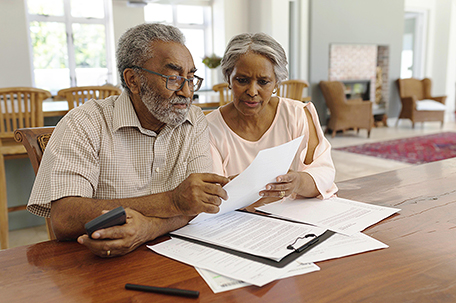
BPT
U.S. Fire Administration data shows since January, more than 285 older adults (age 55 and older) have died in house fires, accounting for more than 53% of known fire deaths in the U.S. By age 65, people are 2.5 times more likely (or 4 times more likely for those age 85 and older) to be killed or injured by fires compared to the population at large. To address this crisis, Kidde, as part of Carrier’s Healthy Homes Program, is launching a nationwide public safety campaign to help keep older loved ones safe from harm as many remain isolated as a result of the COVID-19 pandemic.
Seniors are particularly vulnerable to home fires. According to the Pew Research Center, older Americans are more likely to live alone in the U.S. than anywhere else in the world. There’s also been major growth in the older population. In fact, the National Institute on Aging reveals there are currently 39.5 million people in the United States over the age of 65, including 5.6 million people over 85.
When living alone, older adults can often neglect or are unable to install and maintain smoke alarms. In fact, according to the U.S. Census Bureau, nearly 40% of people aged 65 and older have at least one disability, which could impede their ability to adequately maintain their home safety and security systems. When working alarms are installed, age-related hearing loss can make it difficult to respond quickly to the sound of a standard smoke alarm. Home occupants also have far less time to evacuate – only 2 or 3 minutes – due to the increased prevalence of synthetic-based furnishing materials.
“While keeping our older relatives safe has always been important, it’s never been more so as many of us remain separated due to COVID-19,” said Sharon Cooksey, marketing and communications manager for Kidde. “This part of the population is particularly vulnerable to home fires, so it’s critical for family members to understand how to keep their older loved ones safe when they can’t be there in person.”
Kidde shares the following advice for seniors and their caretakers:
• Anticipate your needs. Escaping quickly can be challenging for many older adults. Be sure to keep glasses, hearing aids, canes or wheelchairs close to your bed at night so can you easily access them in an emergency.
• Prepare your sleeping area. According to the U.S. Fire Administration, the majority of fatal fires occur when people are sleeping. Consider sleeping in a room on the ground floor to help make an emergency escape easier, and have a landline telephone or cell phone and charger nearby along with a local emergency number in case you are trapped by smoke or fire. Keep a flashlight and whistle near your bed to signal for help.
• Be extra cautious in the kitchen. Seniors 65 and older are 2.5 times more likely to suffer from life-threatening or fatal injuries in kitchen fires compared to the rest of the population. Never leave cooking unattended and turn off the oven and burners once finished. Consider programming kitchen devices to automatically shut off after a set period of time, and avoid wearing loose clothing as it can easily catch fire.
• Check your escape route. Ensure you’re able to open all doors and windows in your home; locks and pins should open easily from the inside. Know how to operate emergency release devices on any security bars on doors and windows, and check that windows haven’t been nailed shut, or sealed shut with paint. If they have, arrange for someone to break the seals around your home and remove any nails.
• Install interconnected alarms throughout the home. Seniors are often more likely to die in a home fire due to hearing loss and mobility issues. Interconnected alarms – if one alarm sounds, all alarms throughout the home sound in unison – can help alert seniors to a fire incident more quickly. Alarms should be installed on every level of the home (including basements), in every bedroom and outside each sleeping area.
• Opt for alarms that can be powered by a 10-year sealed battery. For older Americans who are unable to access their alarms every six months, consider a 10-year sealed battery smoke alarm that eliminates the need for frequent battery replacement. Depending on your preference, you can either install a hardwired alarm with a battery back-up or an alarm powered by a 10-year battery.
• Consider a strobe alarm or bed shaker. For older residents who are deaf or hard-of-hearing, or who remove hearing aids to sleep, consider alarms with strobe (flashing) lights for a greater chance of waking a sleeping person.
For more fire and carbon monoxide safety tips for your entire family, visit kidde.com/seniorsafety.














Leave a Comment